Ten new directors general were recently installed in President Jacob Zuma’s administration. The M&G‘s political staff assess them

RespectedSean Douglas Phillips: Performance Monitoring and Evaluation
Phillips has the advantage of being the first director general of a new department, so he can build it according to his and his minister’s tastes. But he has a tough job because his department is expected to be the key player in monitoring the performance of ministers. Though Phillips insists the evaluation of ministers is the president’s prerogative, Jacob Zuma will rely heavily on the reports of his department.
Phillips was previously responsible for roads and bridges at Limpopo public works (his minister Collins Chabane’s former provincial portfolio) and later became department head. A qualified engineer and seasoned bureaucrat, he is respected in government for his public management expertise and seems a good choice.
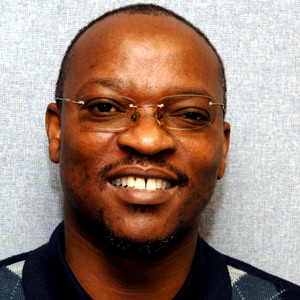
Under pressureMkuseli Apleni: Home Affairs
Apleni’s term of office kicked off with a looming lawsuit by Robert Gumede’s GijimaAst, whose multibillion-rand information technology contract with the department was recently cancelled. However, he can lean on the support of his political head, Home Affairs Minister Nkosazana Dlamini-Zuma, with whom he has a relationship from the former foreign affairs department, now international relations and cooperation.
Apleni served the Home Affairs Department as its chief financial officer for six months before he was appointed DG. During that brief tenure the department failed to achieve a clean audit. The auditor general found that capital assets were misstated, payables and lease agreements were not properly managed and there was irregular expenditure of R198-million in 2008-9. Non-compliance with tender and treasury regulations was another problem.
Apleni is under pressure to ensure the department produces the smart-card ID that has been in the pipeline since 2001 and budgeted for every financial year since then.
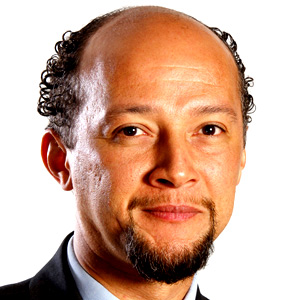
New measureElroy Africa: Cooperative Governance and Traditional Affairs
A forensic audit report recommended that Africa be disciplined for flouting tender regulations - raising questions about his appointment. Previously deputy director general for systems and capacity building in the local government department, Africa is close to his minister, Sicelo Shiceka. Was this the reason he was not reprimanded for acting in what forensic auditors called an irregular manner?
In addition, between April 2009 and February this year 58 financial transactions valued at R1,8-million were declared irregular by the department’s procurement division and Africa was acting DG for much of this period. He condoned the expenditure, finding that there was “no intention to benefit any individual or to violate the law” and has since introduced “new measures” to curb financial irregularities.
His town and regional planning qualification will come in handy and his experience at the public works department could assist in infrastructure development programmes, where the two departments have to work together.
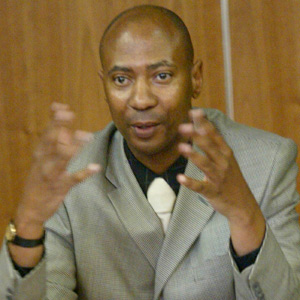
PraisedBlake Keith Mosley-Lefatola: Public Service and Administration
Mosley-Lefatola’s previous work experience was largely in Gauteng’s metros — Tshwane, Johannesburg and Ekurhuleni. Late in 2006 he quit his Tshwane job amid allegations of tender irregularities.
Forensic auditors found he was a director of Planact, a non-profit organisation that helps with community development and local government capacity building, to which the metro had awarded a R120 000 contract. The council said that he had declared his interests but auditors were concerned that Planact won the tender despite not submitting the lowest quote.
Mosley-Lefatola is the former national education coordinator of Cosatu’s chemical union. After the 1994 elections he oversaw the formation of administrative systems in the North West province and later became deputy director general of the province’s local government department. He was chief executive of the Gauteng Economic Development Agency and at the City of Tshwane, where opposition parties praised him for fixing the metro’s financial woes.
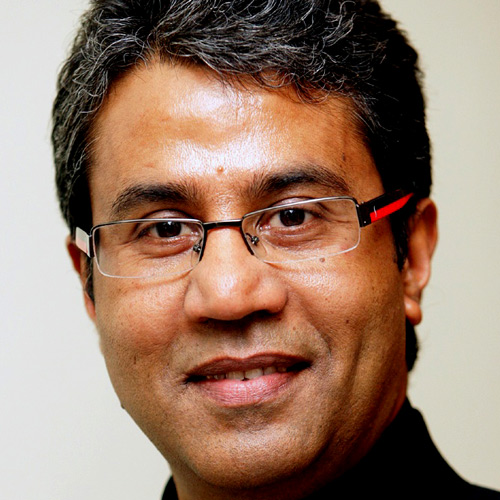
DutifulBobby Soobrayan: Basic Education
Soobrayan has spent most of his career in education as an academic or bureaucrat. For 11 years he was a lecturer in education at the then University of Natal and also a member of the university’s education policy unit. At the National Education Department he rose to deputy director general when Kader Asmal was minister, moving later to the South African Management Development Institute, now Palama, which provides leadership skills training for public servants.
Soobrayan holds a master’s degree in education and is knowledgeable about the field. He facilitated the establishment of the new Basic Education Department and was directly involved in developing the Basic Education Action Plan. But under Asmal, the dutiful bureaucrat in him regularly conquered the educationist, raising questions about his decisiveness and independence of mind for his challenging new post.
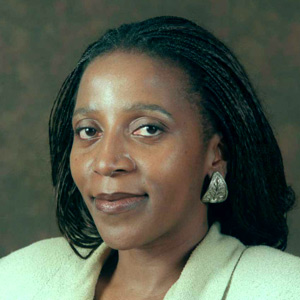
Dressing upMpumi Mpofu: Defence
Becoming secretary of defence will be Mpofu’s third stab at heading a government department. Her experience as director general of transport and housing means that she is schooled in the workings of government, though neither department were beacons of light during her reign: the failure to implement large-scale projects effectively dogged her two years at transport.
As an army outsider, sorting out the defence department will be her biggest challenge yet, with striking soldiers, an army filled with elderly soldiers and the new job of securing borders. She has a close relationship with Defence Minister Lindiwe Sisulu, which started in housing. Like Sisulu, Mpofu loves dressing up, with her outfits at the court appearances of her husband, former SABC boss Dali Mpofu, making headlines.
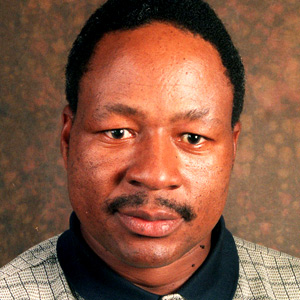
StrictKingsley Makhubela: Tourism
South Africa’s former ambassador in Portugal, high commissioner in Kenya and presidential envoy to Somalia, Makhubela understands the wider world from which his department seeks to attract tourists and deals easily with people in power. It is said, for example, that he advised President Jacob Zuma on how to shake Queen Elizabeth’s hand.
Makhubela has political clout from his days in exile, where he served as personal aide to then-ANC president Oliver Tambo. And his experience of government - he served in the diplomatic service since the days of Nelson Mandela — will help him in shaping the Tourism Department. His former colleagues say he can be “strict and inflexible”, expecting his underlings to toe the line and get the job done.
But in diplomatic circles it is said that despite the huge staff complement of the protocol section “everything happens at the last minute”.

Suspicion Precious Matsoso: Health
Matsoso’s six years as head of the Medicines Control Council (MCC) filled many observers in the health fraternity with suspicion when she became DG of health: those years coincided, after all, with the reign of Manto Tshabalala-Msimang, whose eccentric views on Aids treatment are well remembered.
The Democratic Alliance and the Treatment Action Campaign were split on Matsoso’s appointment, the former saying the Health Department needs a “new beginning”, the latter arguing that Matsoso helped restructure the MCC and knew what was needed to get the health system back on track.
Matsoso left the MCC in 2004 to work as the director of the World Health Organisation’s department of technical cooperation for essential drugs and traditional medicine. Later she became the WHO’s director for public health innovation and intellectual property.
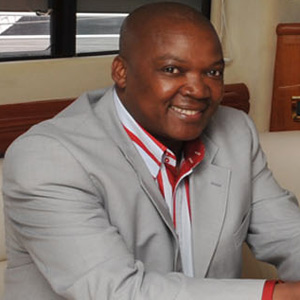
AffableThabane Zulu: Human Settlements
He may be a keen reader of Stephen Covey’s The Seven Habits of Highly Effective People, but Thabane Zulu’s record as municipal manager for Pietermaritzburg’s Msunduzi Municipality suggests that he may not have absorbed its message. His appointment as DG was welcomed by the Black Management Forum, but the municipality that he once ran was placed under administration.
Zulu’s affable nature has made him popular. But as KwaZulu-Natal’s social welfare minister he crashed his Range Rover and could not explain why he had R40000 in cash with him, raising eyebrows. His friendship with Human Settlements Minister Tokyo Sexwale began when the two men were doing time on Robben Island.
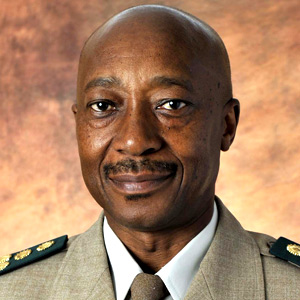
StabilityThomas Swahibi Moyane: Correctional Services
Although he has no experience of the prisons environment, Moyane is expected to bring stability to a department plagued by operational problems. As the erstwhile chief executive of the Government Printing Works, responsible for the printing of identity documents and passports, he has a pre-existing relationship with his political principal and former home affairs minister, Nosiviwe Mapisa-Nqakula.
Moyane is an experienced manager, having also worked as director of strategic competitiveness at the department of trade and industry, as MD of Engen in Mozambique and for the Guinea Bissau government in the early 1990s. A trained economist, Moyane impressed Parliament’s home affairs committee with his financial competence.